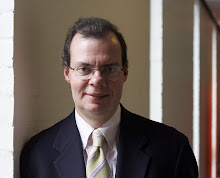F. D. Maurice was born into a family of a Unitarian minister whose life was marked by intense religious controversy due to the non-reformer tradition versus the Church of England, the Anglican tradition. Maurice’s theology was shaped in large measure by the way he had to come to terms with both the Anglican tradition of the English nation and the non-reformer, Unitarian tradition of his family.
F.D. Maurice was contemporaries with the poet, Alfred Lord Tennyson. Tennyson wrote a poem to F.D. Maurice to honor his friendship. Maurice was also friend to another poet, Samuel Coleridge. Coleridge and Maurice both often wrote about the notion of polarity. Polarity is another name for the Anglican concept of the Via Media.
The English Reformation, specifically the Church of England has often been described as the Via Media – or the middle way between Roman Catholic and the Puritans extremes. Maurice and Coleridge attempt to redefine Via Media for as time passed the Via Media became more associated with a compromise position.
Coleridge argued that polarity is holding the tension between opposites. Paul Avis, a contemporary Anglican theologian writes about this notion of polarity as “a quality of thinking, an approach in which elements usually regarded as mutually exclusive were seen to be in fact complementary. These things were held in a living tension, not in order to walk the tight-rope of compromise, but because they were seen to be mutually illuminating and thereby to fertilize each other.”
F.D. Maurice referred to polarity as a union of opposites. Maurice rejected the idea that the English Settlement of the Reformation was either a cowardly or cunning compromise that lacked the courage to side either with the Council of Trent and Rome or the most radical Puritan reformers. Rather Maurice believed that Elizabeth I united within herself the extreme elements of the catholic and reformed elements of the nation.
This notion of polarity in Coleridge or union of opposites in Maurice is an important one as both attempt to capture what is distinctive about Anglicanism, that is, what it means to be an Anglican. As Episcopalians we have a share in this Anglican heritage and legacy, as The Episcopal Church is a member church of the worldwide Anglican Communion.
This union of opposites is a difficult concept for us to live in our lives and in the life of the Church. In the larger Church we do not often see Maurice’s union of opposites or Coleridge’s polarity at work but more often polarization between two sides. It is good for the church to recall this dimension of Maurice’s in the midst of its various global controversies.
Even without trying to understand all the nuances of these controversies today, we can all understand what Maurice was talking about by considering the various elements of our workplaces. I am sure in your workplaces you meet many very different people. I am confident that you need to find ways of working together that honor one another and acknowledge your differences without achieving what Coleridge and F. D. Maurice called a false unity. In work situations there can often be a dominant desire to go one way and not another. Yet I am sure you would agree that good team leaders know how to bring everybody along to get the project done.
It is in this way that the most authentic sense of being an Anglican also attempts to hold together very different people. Anglicanism is not about simple unities but rather about acknowledging the complex richness of God’s world.
So F. D. Maurice may have written in the mid 1800’s but his theology is as relevant today as it was in his time. If anything we would do well to cherish his union of opposites as a fresh alternative approach to our life in community in the church, our families and workplaces.
Sunday, August 9, 2009
Subscribe to:
Post Comments (Atom)

No comments:
Post a Comment